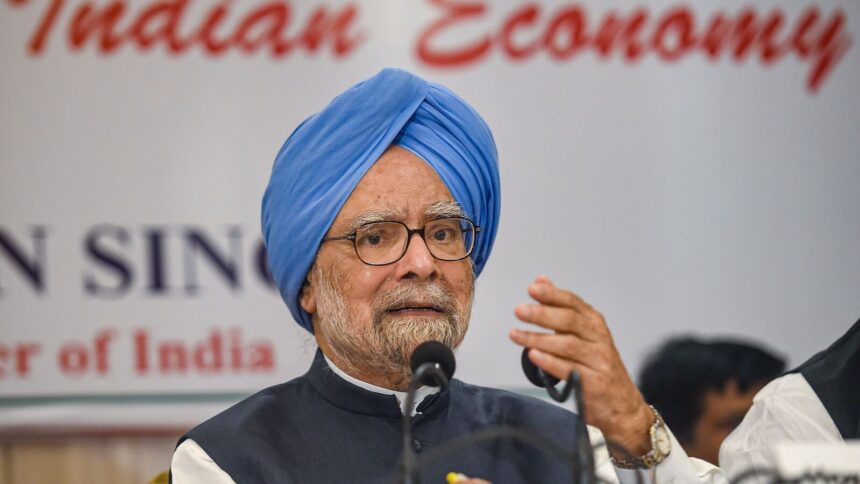Remembering Manmohan Singh: The Architect of India’s Economic Liberalisation
On Thursday, India mourned the loss of a key figure in its modern history: former Prime Minister Manmohan Singh. Known as the ‘architect of India’s economic liberalisation,’ Singh passed away at the age of 92 in the emergency ward of AIIMS New Delhi, leaving behind a legacy that transformed the Indian economy and reshaped the nation’s trajectory in the globalization era.
A Life of Unwavering Commitment to Public Service
Manmohan Singh’s journey into the world of politics began in June 1991 when he joined the Indian National Congress party. Appointed as Finance Minister by then Prime Minister P.V. Narasimha Rao, Singh stood at the helm of India’s economic reforms, ushering in an era characterized by liberalization, privatization, and globalization. His visionary policies allowed India to emerge as one of the world’s fastest-growing economies.
Despite suffering from age-related ailments, Singh continued to honor his commitments to the public during his later years, attending sessions in Parliament in a wheelchair. His dedication, particularly noted during his retirement from the Rajya Sabha in April 2024, spoke volumes about his unyielding spirit and commitment to serve the nation.
The Hallmark of Economic Reforms
Manmohan Singh’s reformist approach is perhaps best exemplified by his maiden speech as Finance Minister on July 24, 1991, where he famously quoted Victor Hugo: “No power on earth can stop an idea whose time has come.” This phrase captured the essence of his vision, setting the stage for a new economic order in India.
During his tenure as Prime Minister from 2004 to 2014, Singh continued to build on his initial successes, steering the nation to an average annual GDP growth rate of 8.3% during the UPA-I period. Economic expert Isher Judge Ahluwalia emphasized the impact of Singh’s earlier reforms from 1991, crediting him for creating a conducive environment that allowed India to harness the benefits of global economic trends. However, the latter part of his tenure was marked by challenges, including what was termed ‘policy paralysis,’ affecting the momentum of reform.
A Scholar and a Leader
Beyond his political achievements, Manmohan Singh was an accomplished academic. He received his Bachelor’s and Master’s degrees in Economics from Panjab University, followed by an Economic Tripos from Cambridge University and a D.Phil from Oxford University. His distinguished educational background laid the groundwork for his influential career in economics.
His academic credentials allowed him to contribute to India’s policy-making process meaningfully. Singh also served as the Reserve Bank of India (RBI) governor from 1982 to 1985, further solidifying his status as a leading economist of his generation.
A Legacy of Wit and Wisdom
Singh was known not just for his economic acumen but also for his wit and eloquence. His speeches, replete with quotes from renowned authors, showcased his deep cultural and literary knowledge. He made light of grave circumstances and critics through humor and intellect, often integrating Urdu poetry into his parliamentary discussions, which endeared him to many. On the anniversary of economic liberalization on July 23, 2021, he poignantly quoted Robert Frost, “But I have promises to keep, and miles to go before I sleep,” reflecting on his lifelong commitment to India’s growth.
Conclusion: A Sad Farewell
As Manmohan Singh has now bid farewell to the world, his contributions to India’s economic landscape will forever be remembered. He not only changed the course of India’s economic policy but also enriched the realm of Indian public life with his integrity, intelligence, and dedication.
In an era of significant change, Manmohan Singh stood as a beacon of hope and reform. His legacy will undoubtedly influence future generations of economists and policymakers in India and beyond. The nation has lost a stalwart leader, but his ideals and vision will persist, reminding us of the power of dedicated service and progressive thinking.
In memory of Manmohan Singh, let’s strive toward building on the foundation he laid for a prosperous, equitable India.










